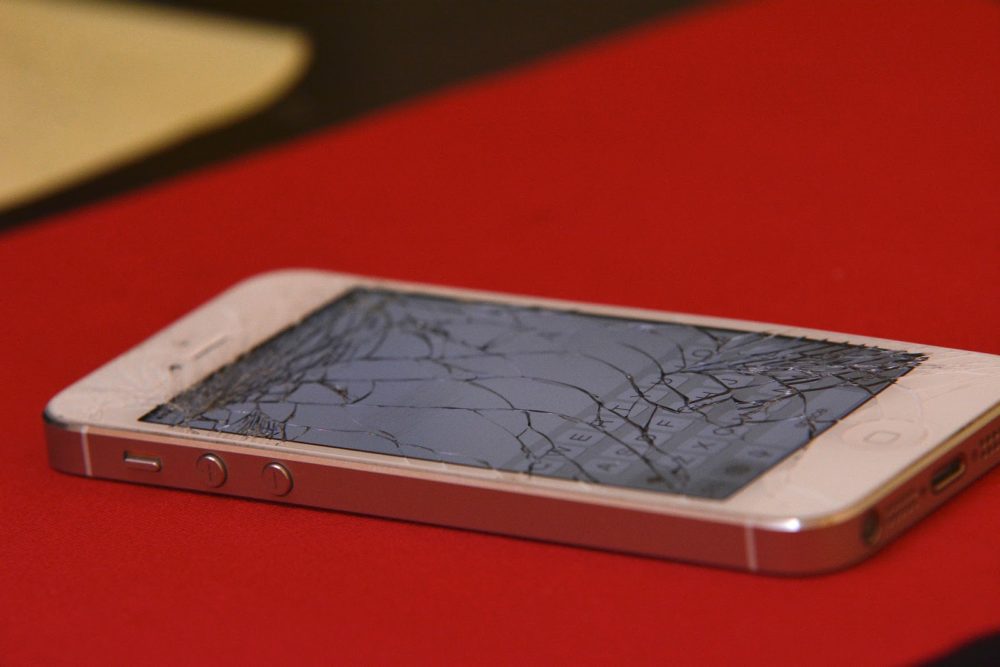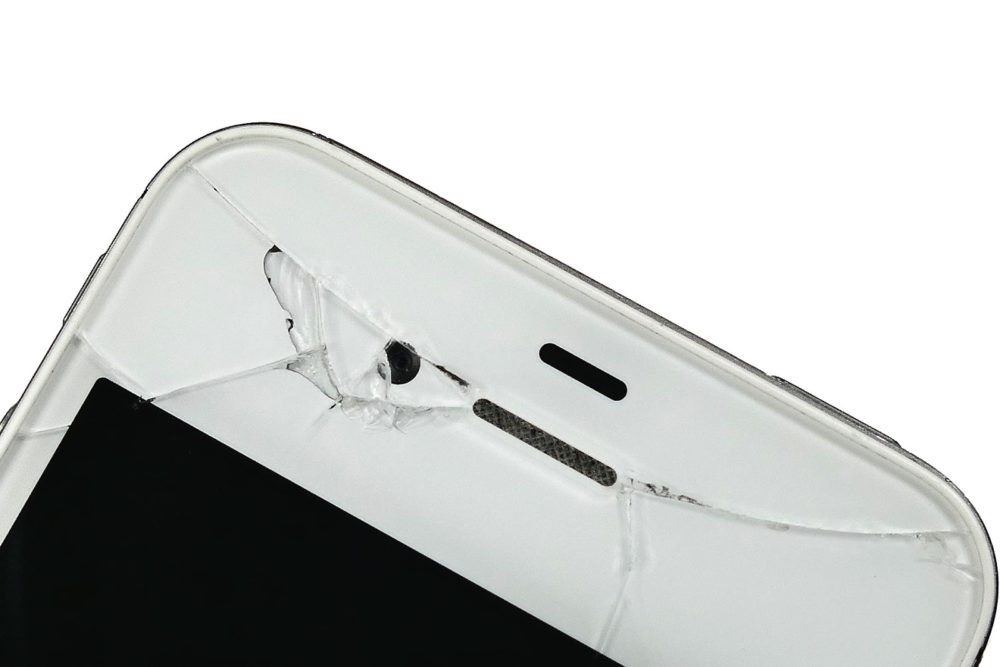National security and e-waste have more in common than you might think. Here are a few things we know.
Smartphones, everyone loves them. First, they tend to be compact, only weighing about five ounces. The technology behind them keeps expanding and expanding rapidly.
If you enjoy what your smartphone can do, chances are by next year, a new version will come along that does even more.
And that, in a nutshell, is one of our biggest challenges with the constantly changing world of modern technology. We all love our smartphones, laptops, tablets and other electronic devices, and we can’t resist being told that our current model, which works great, has become obsolete because there’s a newer version that is so much more sophisticated.
The quicker the technology behind each device gets upgraded, the quicker we ditch the older version. In 2014 alone, the world threw away 41.8 million metric tons of electronics. That caught the attention of the United Nations University, which issued a cautionary report noting that the United States and China together generate nearly a third of the global waste stream, but less than 20 percent of it gets recycled. The ones that get thrown out – the vast majority – end up in landfills where they can create serious health hazards.
And until now, the U.S. government has not had any laws governing the disposal of e-waste and has instead left the issues for states to decide. But that could soon change. New federal regulations are being considered that help to emphasize just how serious the problem of e-waste has become globally.
What Changes Are Federal Regulators Proposing?
The Bureau of Industry and Security, a division of the U.S. Department of Commerce, is considering new regulations to ban e-waste from being exported to other countries, in an attempt to limit the number of counterfeit goods coming back into the U.S. The federal regulators would also require stringent tracking procedures for e-waste exports being accepted by other countries.
Why now?
The Bureau of Industry and Security has conducted research showing that exported devices make their way back to the U.S. as counterfeit products, and no one is entirely sure how widespread this problem is.
BIS wants to begin collecting comprehensive export data, including adding a data element to the Automated Export System, which U.S. exporters use to declare international shipments.
This is a new approach to the discussion about regulating e-waste. In the past, any proposed federal legislation designed to deal with e-waste cited environmental concerns. The BIS proposal is unique in that is deals more with the concept of protecting national security by fighting the import of counterfeit electronics. The problem has been the exporting of unprocessed e-waste out of the U.S., where far too often the chips in those devices are harvested so they can be resold back into this country as counterfeit products.
Regardless of the reason, if this proposal becomes law, it should spur an even larger debate about how to handle the rising amount of e-waste being accumulated in this country, particularly if it can’t be exported to other countries.
Then what do we do with those unwanted electronics?
Interestingly, one of the few exceptions within this proposal is for devices where materials have been recovered from e-scrap through processing and reuse – in other words, through recycling. Those devices would be allowed for export.
Why Recycled is the Preferred Way To Deal With Scrap

What happens to all the e-waste being generated? Some of it gets placed in regular household trash and ends up in a landfill. That’s raised serious environmental concerns, since e-waste contains toxins like mercury and lead, which can seep out into the ground and contaminate the soil and water around the landfill.
Some of it gets sent to incinerators to be burned, which is just as problematic since those chemicals are released into our atmosphere and contribute to pollution and respiratory problems.
And some of it goes into a secondary market for used electronics in the developing world. The United Nations Environment Programme has estimated that up to $19 billion worth of global e-waste gets illegally traded or dumped each year.
The UN has responded by calling for much higher recycling rates for e-waste. Taking all unwanted electronics devices to an experienced recycling firm like Great Lakes Electronics Corporation enables those devices to be dismantled, with the parts that still have value being recycled and sold to manufacturers to make new products.
The benefits of recycling are well documented. Recycling e-waste keeps those used electronics out of landfills and helps protect our environment. And recycling the parts from those devices that still have value helps hold down the cost of making new products – savings that can be passed on to consumers.
And using the metals within e-waste for new products means manufacturers don’t need to rely on mining for virgin ore to make new metals, which helps to preserve more of our natural resources.
Still, as the BIS proposal makes clear, the environmental concerns are only one aspect of the e-waste debate. Security is another.
National Security and E-waste: Why is E-waste a Security Concern?

In the past few years, there’s been a growing concern about the national security implications of e-waste. One obvious worry is over the data contained within these devices. U.S. consumers who throw out their used smartphones or laptops have most likely left a lot of their critical data and personal information on it, even if they deleted that information. Cybercriminals have a lot of sophisticated means at their disposal for retrieving that data. The same is true for businesses that get rid of company computers and cell phones.
This concept also applies to government devices. The U.S. Department of Homeland Security and the FBI have cautioned about the risks of government agencies attempting to dispose of electronic assets, particularly the ones that get shipped to China and other countries.
In some instances, these agencies warn, those devices end up in the hands of people who pull the hard drives from these electronics and go mining for as much valuable information as possible. What’s contained on those devices becomes far more lucrative than the device itself.
The other concern, raised by the U.S. Senate Armed Services Committee, is over substandard electronic components being manufactured overseas from America’s e-waste that make its way back into this country– and sometimes ends up going into critical defense systems. Most of that material comes from e-waste shipped from the United States and the rest of the world to China. And these materials are not manufactured under tight supervision in clean rooms.
That’s why BIS has noted that the solution to this kind of counterfeiting is federal legislation to ban the export of unprocessed e-waste. That way, recyclers would need to prove that devices are in working condition before they could be shipped overseas for reuse.
And that points to one of the clear solutions to this dilemma, and that’s improving U.S. recycling rates. Firms like Great Lakes Electronics Corporation will not only recycle your used electronics, but they’re also your security experts, able to wipe your devices clean and eliminate the security risk of your data getting into the wrong hands.
More importantly, making a serious push for increased recycling rates of used electronics, while also placing limits on exports, could help create thousands of new jobs across the country, according to a new study by the Coalition for American Electronics Recycling (CAER).
Their study found that up to 3.6 billion pounds of e-waste gets exported each year. Processing this e-waste in the U.S. has the potential to create 21,000 full-time recycling jobs and 21,000 additional indirect jobs, CAER noted.
Their study also pointed out that jobs in this sector are projected to grow in coming years as e-waste volumes continue to rise – growth that is now happening two to three times faster than any other portion of the waste stream.
Conclusion
Consumer electronics have changed the way people live, but as the amount of e-waste keeps growing, we know the Earth’s resources face grave risks from the growing amount of e-waste.
That’s why environmentalists have aggressively pushed for an increase in recycling rates for e-waste. Because we know that recycling remains the most effective way to keep e-waste from damaging our environment and our health.
And if the federal government bans the exporting of e-waste for security reasons, that provides even more incentive to recycle our used electronics. National security and e-waste will, in the future, become synonymous with protecting citizens from nefarious cyber criminals.
Great Lakes Electronics Corporation has a great reputation for being trusted experts in the recycling and management of waste electronics and other metals. The unwanted equipment brought to Great Lakes Electronics Corporation is recycled in a responsible, environmentally conscious way. Family-owned and operated, Great Lakes Electronics Corporation prides itself on being environmental stewards.
They are here to serve customers both large and small, from private customers to large corporations. Contact them today at 888-392-7831 to request a quote.

